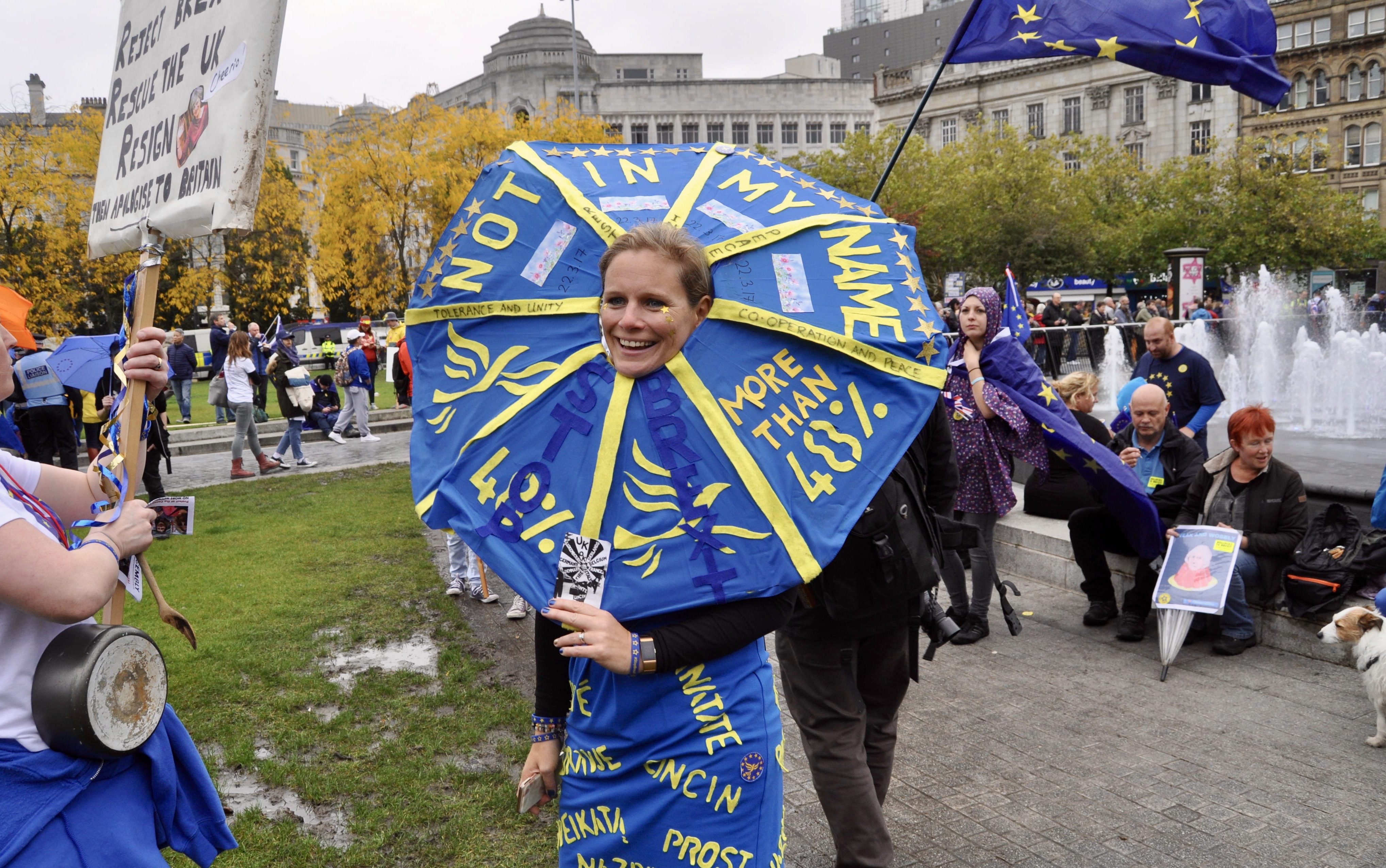
The fact that much of the anti-Brexit movement is dominated by centrist and establishment politicians is not in doubt. For everyone on the left, it has been exasperating to watch Alastair Campbell and Anna Soubry reinvent themselves as heroes with a mass audience. The movement’s often literally blue-faced activists can come across as weird and attached to the status quo.
The “loud, obsessive, tribal” activist core of this new movement will provide fertile ground for debate and study, and was the subject of a damning portrayal in the Guardian earlier this month. But for those who are interested in discrediting the cause of remain, as well as challenging the inconsistency of the centrist politicians who have swarmed around it, there is an additional purpose to these observations. Those most committed to opposing a public vote have done a good job of persuading a whole layer of left wing activists that the anti-Brexit movement is a straightforward proxy war against Jeremy Corbyn. Like Campbell, they are probably quite happy with the wedge that has been driven between remain and the left.
But to really understand what is going on, rather than just score points, you have to ask the question why. The remain movement is a mass movement, and has put serious numbers of people onto the streets. It represents a demographic that is young, urban and socially progressive. How on earth have centrists managed to dominate this movement, just as the British left has become a mass force again? Why is so much of it so hostile to the one political force – the Labour party – that could actually deliver on its demands?
There is, I think, a relatively straightforward reason. The Labour left ought to be the most significant left force in Europe. With the development of a mass anti-Brexit movement, it was presented with a movement that was anti-Tory and instinctively progressive, though lacking a truly transformative vision for society. An overwhelming majority of Labour’s members agree with its core contention – that Brexit is a bad thing and shouldn’t happen. With a relatively minor intervention at a grassroots level and a bit of backing from the party leadership, the Labour left could have transformed the remain movement into something much broader, campaigning against austerity and the political establishment as a whole, as well as Brexit.
Instead, the official position of the Labour left oscillated between indifference and hostility at every crucial moment in the movement’s development. In the public debate, remainers were confronted with a Labour party whose spokespeople and official outriders spent years arguing and briefing constantly against a public vote, and which publicly abandoned free movement in its 2017 manifesto. A young left-leaning remainer attending a Labour meeting to propose a motion on a public vote or freedom of movement is still, even after the recent policy shifts, much more likely to be shouted down by left wing activists who think she is part of a plot to undermine Corbyn than she is to be tutted at by centrists who actually quite like border controls.
It has fallen to much smaller organisations to intervene into the Remain movement on the left’s behalf. The Green party has played a crucial role. Another Europe is Possible – an umbrella group for the anti-Brexit left, for whom I work – has done what it can to inject radical politics into the sprawling grassroots, the People’s Vote marches and the wider public debate. We have made extending free movement and ending Fortress Europe a headline demand, pushed the Europe-wide Green New Deal, and raised the need for class politics (‘build unions not borders’) and a radical domestic programme delivered by a left government. One of the most important aspects of our work is providing a political home within the left for those who feel alienated by Labour’s Brexit positioning. Our reward for this work has been vilification by those parts of the Corbynite left for whom dissent is synonymous with sabotage.
The failure of the official Labour left to engage with the anti-Brexit movement stems largely from a misdiagnosis of what it represents, and an inability to distinguish between its leaders and base. The overwhelming majority of Labour’s members want Britain to stay in the EU. So do a majority of organised workers, people of colour, women, the young, and those who define their own politics as left wing. By definition, many of the up to a million people who marched for a People’s Vote in March this year were ‘our people’. Many will have voted for Corbyn in Labour leadership elections, and almost certainly a majority voted Labour in 2017. God knows what kind of political journey some of those protesters are now on – from Corbyn in 2015 to the Lib Dems in this year’s European elections.
And yet, just as centrist newspaper columnists love hearing about local Momentum groups being overrun by caricatured sects or antisemites, many on the Labour left apparently love having their vision of remainers confirmed, as right wing liberals and chablis-drinking weirdos. This analysis doesn’t just strip remainers of their working class credentials, it strips the working class of its diversity and youth.
The only political force that is capable of radicalising remain is the labour movement. It may yet do so as Labour moves towards a more open remain position and the fight against Boris Johnson escalates this autumn. But until now, that force has largely stood aside from what is by some measures the biggest street movement since the Iraq War – so other people with other agendas have filled the space. What the hell else did we expect?